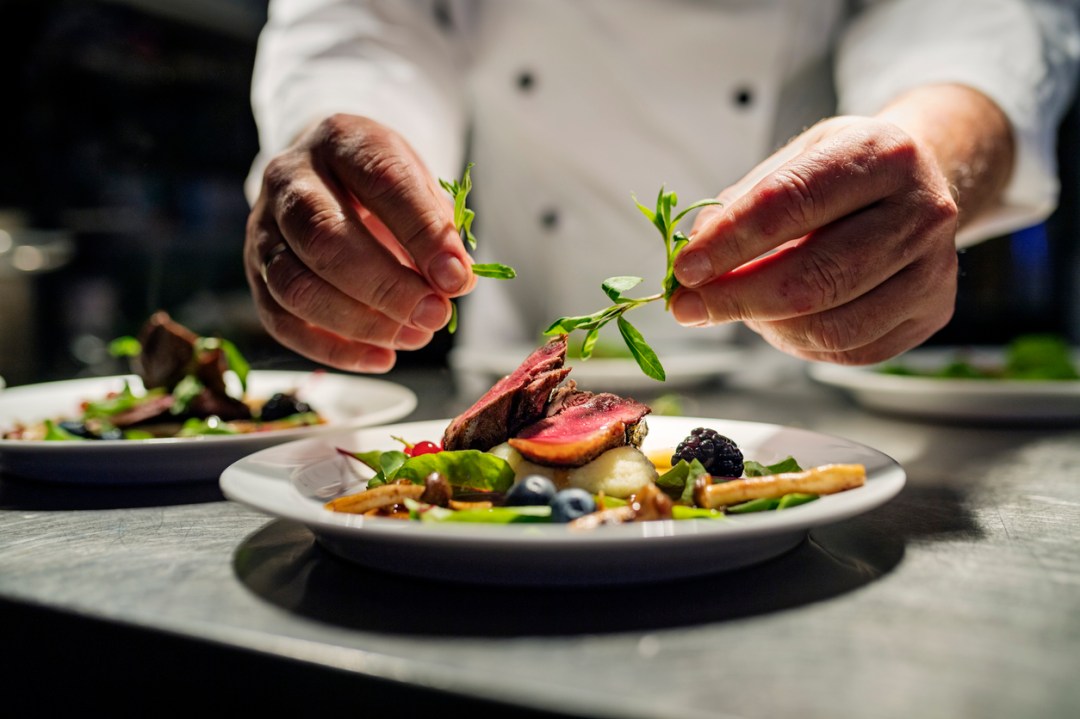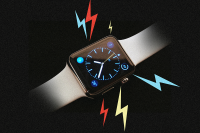Going to restaurants used to be fun. So much so that in the first two booze-sloshed decades of the 21st century, restaurants were the key setting for most of my social activity. My friends and I, living in pretty nasty rented rooms, spent our disposable income on two or three meals out a week, where we ordered decadently and drank plenty of wine. Even if the food and service weren’t always stellar, it was generally possible to relax. Waiters were friendly, if a bit remote. They didn’t breathe down your neck, and they let you focus on each other and your food, not them.
It feels as if the customer is never right now
But amid a generally precipitous decline in hospitality staff’s understanding of the customer-purveyor relationship, plus a steep rise in prices that is ruinous for mood, those days are fast disappearing. Which is why the rude, entitled comments made by an obscure north London Anglo-Irish restaurateur ended up on front pages this week. They kicked a sore spot.
The Yellow Bittern, a tiny new 18-seater restaurant on the Caledonian Road near Kings Cross, serves only lunch on weekdays. It has hardly had a chance to prove itself, and its proposition will take some selling: run by eccentrics, you can’t book online, only by phone call or in person, and it’s cash only. Still, chef and co-owner Hugh Corcoran ranted on Instagram about the insufficiently decadent ordering habits of the customers brave enough to have given the Yellow Bittern a try.
‘It is now apparently completely normal to book a table for four people, say, and then order one starter and two mains to share and a glass of tap water,’ he wrote. ‘There was at one point an etiquette in restaurants that if you booked a table in a nice place you at the very least had to order a main course (and possibly even a starter or dessert) and drink wine in order for your table to be worth serving. At the very least,’ he hectored, ‘order correctly, drink some wine, and justify your presence in the room that afternoon. If you do not drink because you have done so to such excess that it cannot be permitted any longer, then come hungry and eat your fair share.’
There is some debate about whether this screed is an audacious publicity stunt with a whiff of soundness for worker’s rights, or simply the exposition of the odious inner narrative of young people today. To me it is the latter, and a useful reminder of what has gone wrong, and why I no longer seek to go out for lunch or dinner much anymore.
What Corcoran represents is the pernicious sense, felt by diners today, of being hunted. First, there is the price. Paying £8 for a single courgette ‘flower’ deep fried and served with a blob of goats cheese, as I did the other week in Soho, is just not fun, even if you can afford it. Joke prices are depressing, a kill-joy. In Norway or Switzerland, a small glass of beer can easily climb to the £10 region. It’s not that I can’t afford £10, but doing so on a half pint of mediocre beer kills all buzz. Nobody likes to be taken advantage of as brazenly as that. Now too in Britain’s restaurants, prices have outpaced pleasure.
There is also the sense of the topsy turvy logics of wokeness having worked their way through to this sphere too. Staff are often young and, while many are lovely, they come with the dangerous entitlement of those who believe that they are ‘not in a position of power’ as servers, or as young people. One never knows when one’s unthinking interaction with one’s waiter could be seen as a hostile or even racist or sexist act.
Then there’s the fear, baked in to all situations now, of customer dissatisfaction being interpreted as bullying or psychological triggering. A law suit or a visit from the police could follow, but at the very least you may be asked to leave, or treated with stony disdain, because you pointed out that your dish was cold.
It feels as if the customer is never right now, that we are only in such and such restaurant on sufferance, lucky enough to get the chance to part with huge swathes of our earnings for a plate of pork and beans, and a tip for having it brought to one. The stressful Americanisation of the whole retail edifice is evident in the creep of payment machines asking if you will leave a tip for things like having a coffee made for you, or a piece of banana bread put in a bag and handed over for £5.
Corcoran’s comment captured it all: the whiny, entitled attitude of those who are meant to serve, to please, to make us happy and not the other way round; the absolutely classless, vulgar attack on spending choices; and the over-stressing of the rights of the restaurant over and above the pleasure of the customer. How could one eat at his establishment without feeling watched? If you run a restaurant, you have to take the rough with the smooth – the big spenders and the small eaters. If your stuff is good enough, there will be more big spenders. But that, I fear, has become an unfashionably simple way of looking at things.









Comments